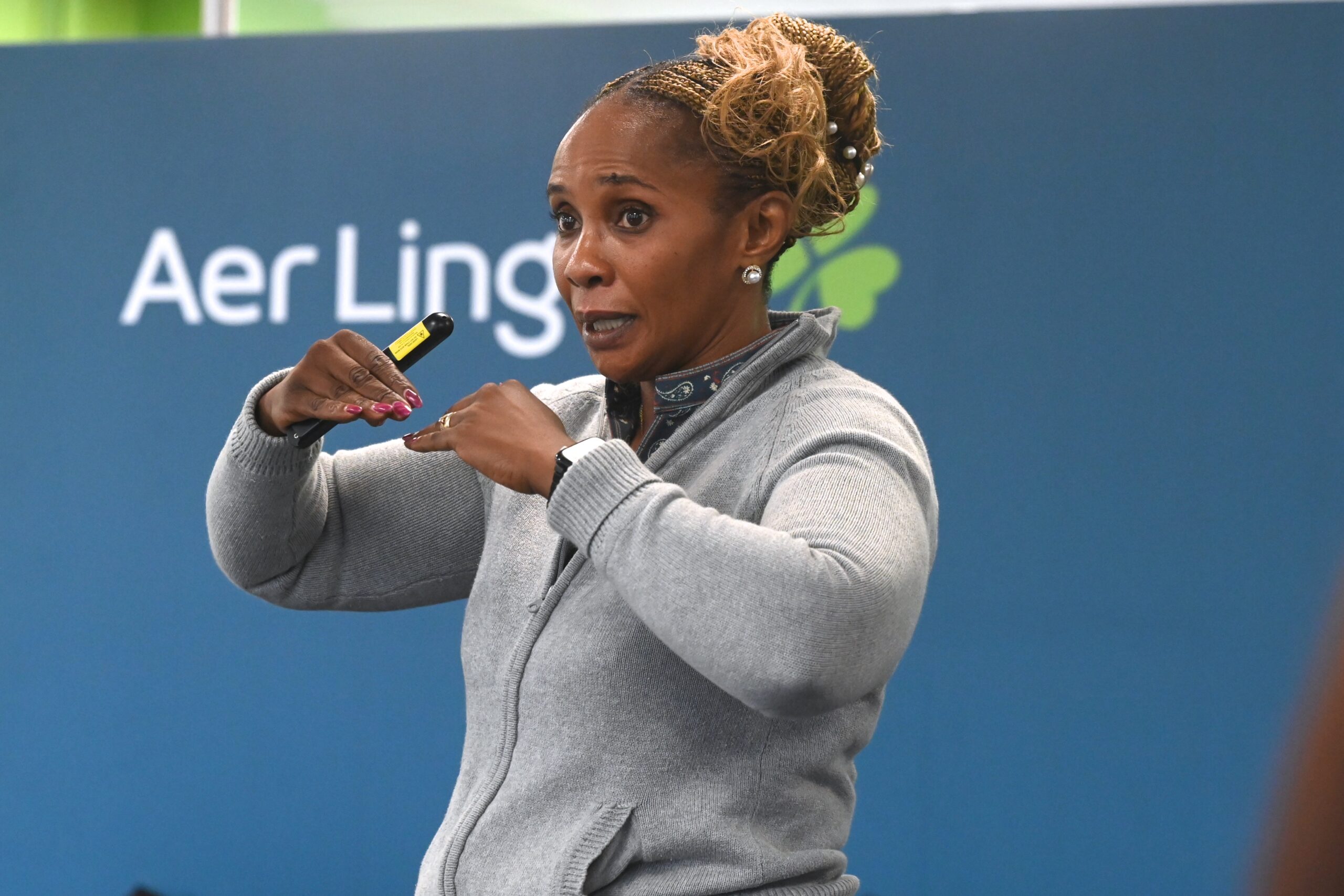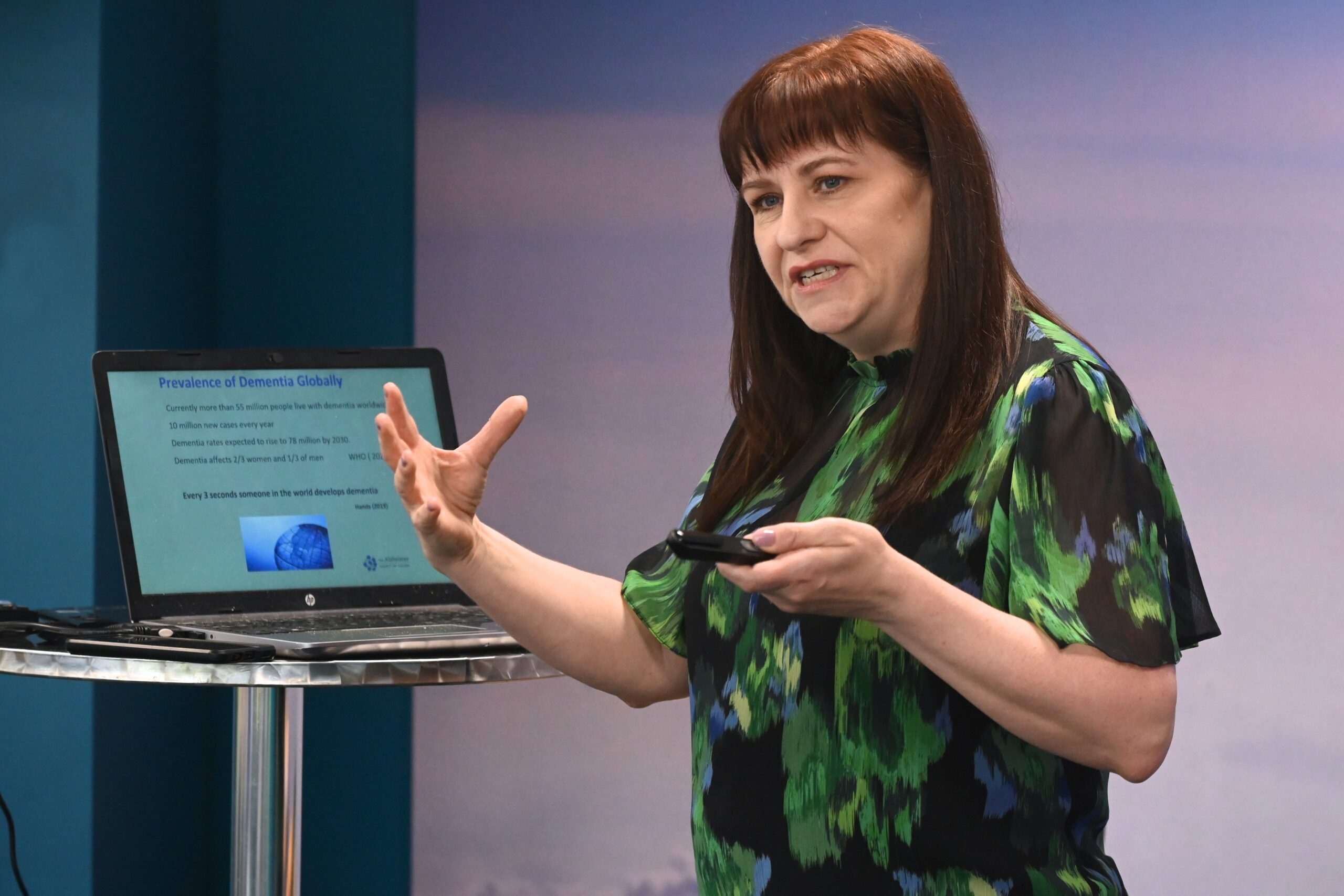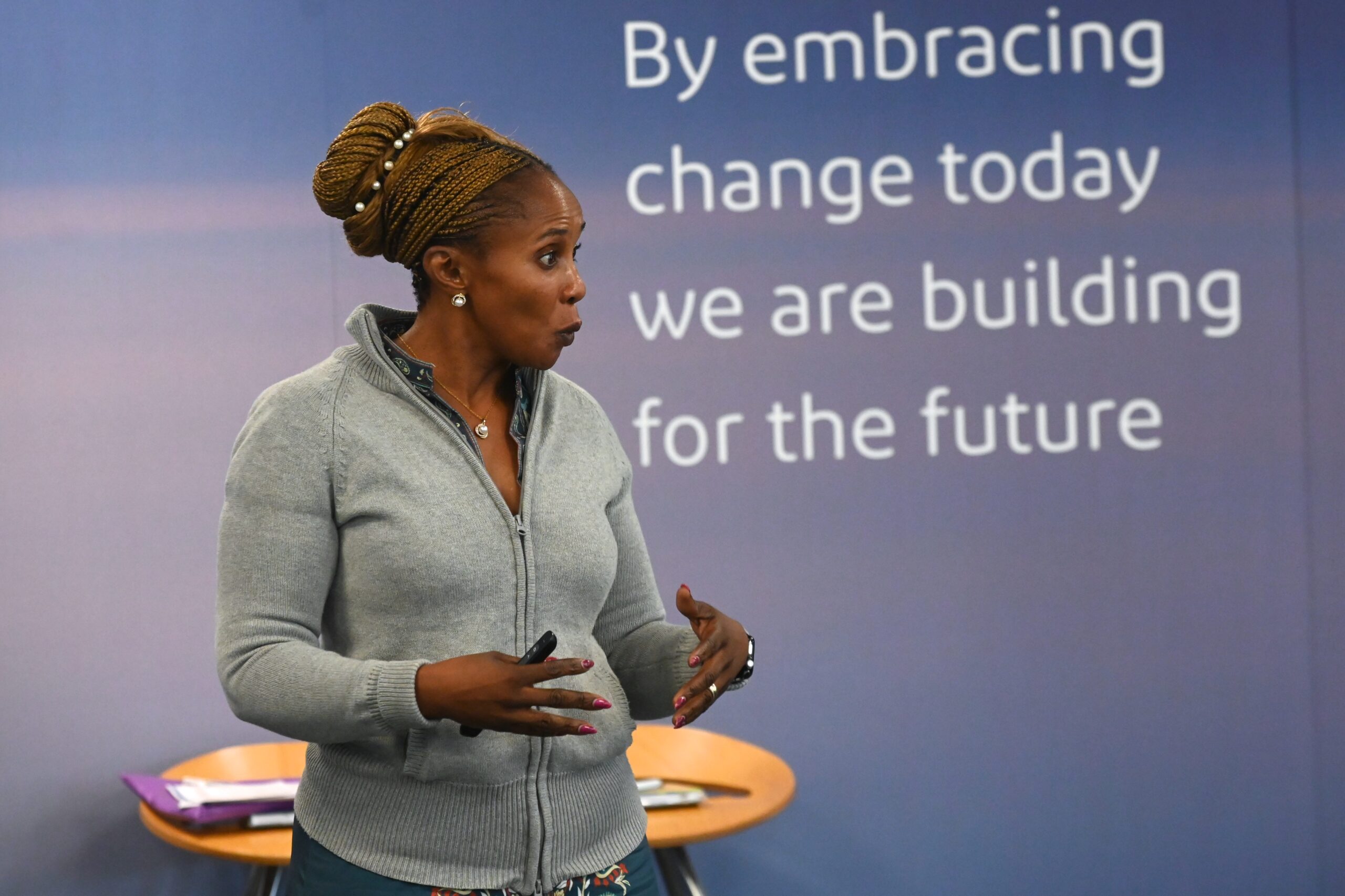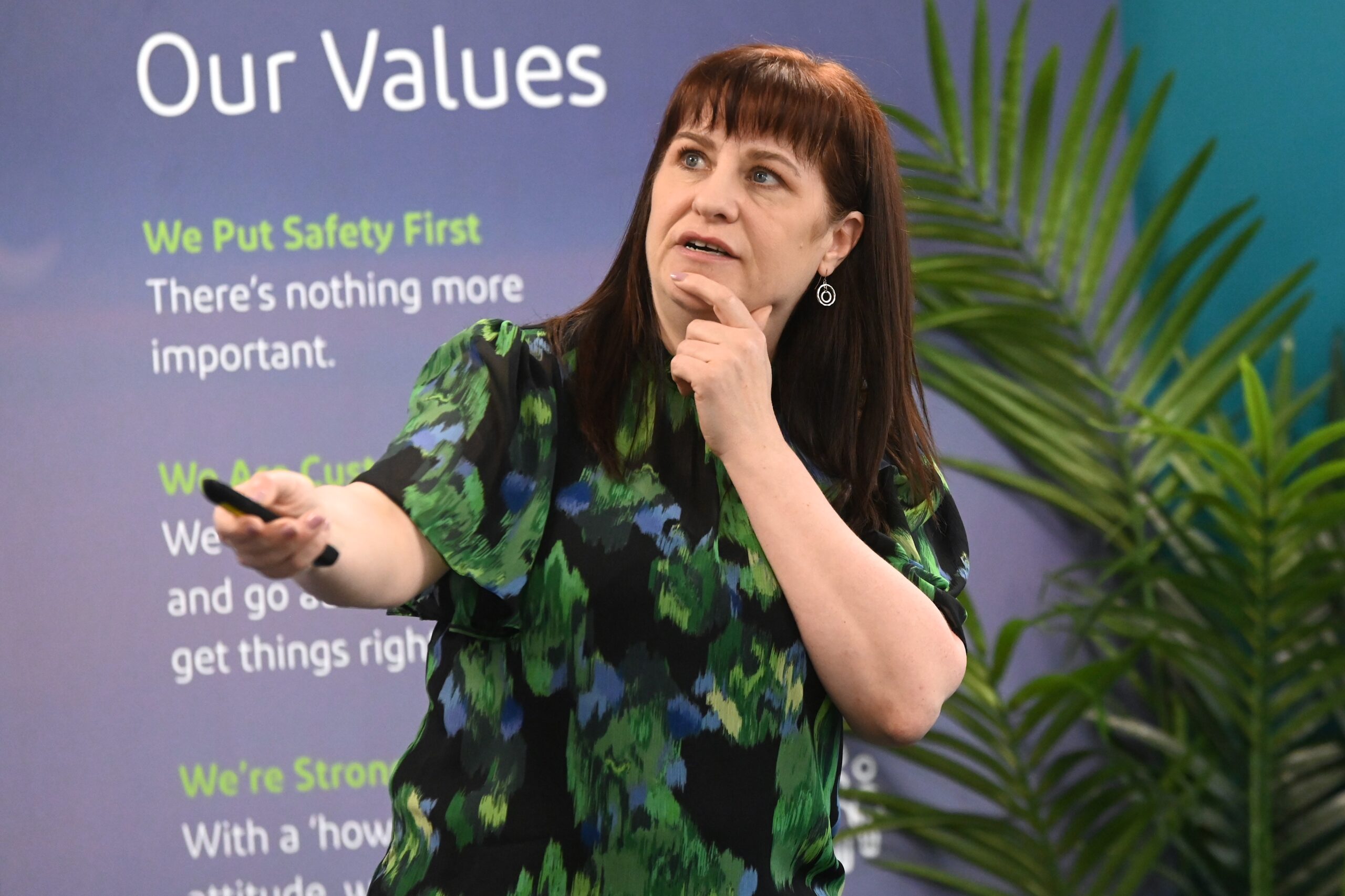Training for Business and Organisations
The Alzheimer Society offers a range of courses for businesses and organisations. These can take place online or face-to-face.
Dementia Awareness Training
We help provide Dementia Awareness training for organisations in all sectors, ranging from retail, transport, banking, health, and the voluntary and community sectors. Together, we are striving to create communities that respect, include, and support people living with dementia, their families, and supporters.
How can my organisation get involved?
We have several options that might be of interest as an organisation, and we also tend to tailor our training courses to suit your organisation’s needs.
To help us better understand your goals, please complete this electronic form here.
Alternatively, feel free to contact us at [email protected] for more information.
Who delivers the courses?
Our dementia awareness training is delivered by experienced Alzheimer Society of Ireland Tutors who will work closely with your organisation before the training to ensure the highest quality of person-centred training is delivered to your staff, and they will also allow time for any questions or answers at the end of the training.
Organisations we have worked with

We have delivered the course to a range of organisations, including:
- Specsavers
- Wexford Dementia Alliance
- Department of Social Protection
- Irish Men’s Sheds Association
- Dublin City Council
- South Dublin County Council
- Ulster Bank
- Bank of Ireland
- Tennis Ireland
- Hidden Hearing
- Bank of America
- Ballyroan Library
- Energia
- Carlow/Kilkenny Education and Training Board
- AL Homecare
Testimonials
In 2024, Hidden Hearing rated our training course 5 stars and would recommend our dementia awareness training to others
This training was great as it gave us reassurance that we already do/action the right processes, care and advise for our own clinical needs but has given us the confidence to have a conversation to help signpost an individual or their support network with their concerns to the right people.
-Hidden Hearing, 2024
The Dementia Awareness training was informative and very well received. It has definitely made a difference with creating awareness of dementia which is so important considering its prevalence in the community.
South Dublin City Council, 2024
As an energy company it can be difficult to know how best to support our customers with specific needs but working with charities like the Alzheimer Society of Ireland can give us the confidence and reassurance that we know enough to do our best but also that we have experts who we can rely on to signpost to.
Energia, 2024
This training has given our staff huge confidence and capability for their role in the bank but also their own personal lives which is hugely important. The training was delivered in a way that it really landed with our colleagues
Bank of Ireland, 2024
Enhancing and Enabling Wellbeing for the Person with Dementia Course
We deliver Enhancing and Enabling Wellbeing for the person with dementia to care organisations.
This two-day course for paid care workers emphasises a human rights-based approach to providing care for a person with dementia. It covers understanding dementia, communication, nutrition, palliative care and managing non-cognitive symptoms. The full timetable is available here.
We are accredited to deliver the QQI 5 Dementia Care and Support: Homecare Education Programme. This course is for home care workers. This course is longer, delivered over 4 face-to-face days over 16 weeks. This course leaflet contains more information.
For more information on any of our courses, please contact [email protected]
Participant Feedback:
“The course has opened my eyes … I am better equipped to help with the complex needs of a person living with dementia. I see dementia as an experience rather than an illness. I have gained in-depth knowledge about how to deal with the experiences that my client goes through”
–Course participant 2022.




